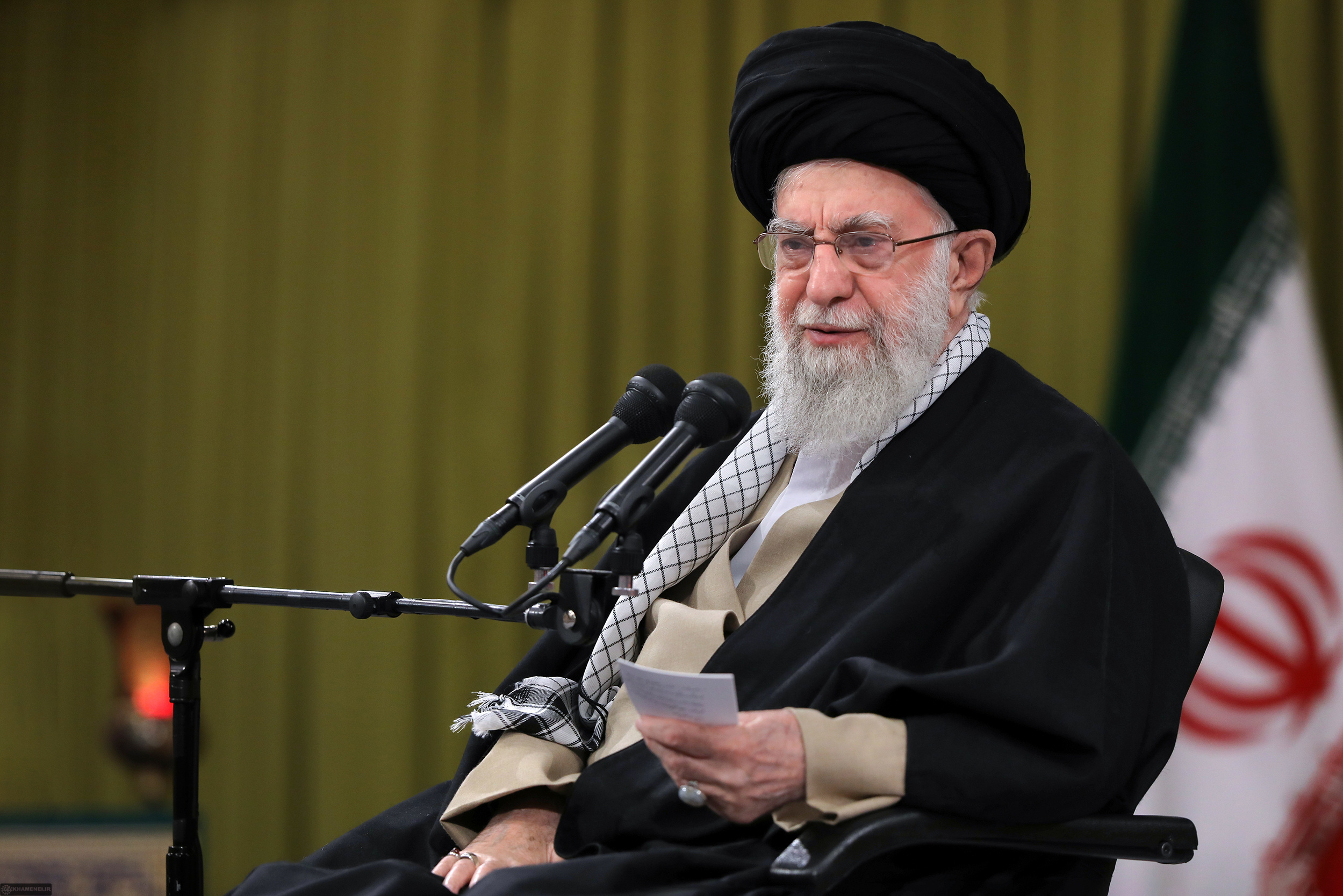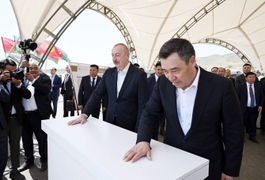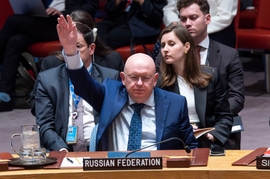Iranian Supreme Leader Ayatollah Ali Khamenei has urged for the political and economic isolation of Israel concerning the Gaza war.
“Sometimes the positions and statements of the officials of the Islamic countries are wrong because they talk about an issue such as the ceasefire in Gaza, which is beyond their control and is in the hands of the evil Zionist enemy. The officials of Islamic countries should focus on matters that are within their control,” Khamenei said while addressing a gathering of Tehran officials on January 23, according to his official website.
He emphasized that “what is in the hands of Islamic countries is the cutting off vital arteries” to Israel, adding that “Islamic countries should cut off their political and economic relations with the Zionist regime and they should also refrain from supporting this regime.”
Khamenei also asserted that “despite the inappropriate” measures of these officials, the people of Gaza “will be victorious.”
The Iranian president and other high-ranking officials have called for an embargo and severance of ties with Israel by Muslim countries since the beginning of the Israel-Gaza war on October 7, 2023.
The number of casualties resulting from bombing and shelling by Israeli forces in various areas of the Gaza Strip has reached 25,700, as announced by the enclave’s health authorities on January 24. According to them, the total number of those injured in Israeli attacks has risen to 63,740 since the beginning of the Israel-Gaza war on October 7, 2023. In the past 24 hours alone, 210 Palestinians were killed, and nearly 390 were wounded in Gaza.
About 1,200 Israelis were killed since October 7, and the military reports that 210 soldiers have died in the subsequent offensive.
On January 24, Iran’s Foreign Minister Hossein Amir-Abdollahian, who was visiting New York to attend the UN Security Council’s (UNSC) meeting on the war in Gaza, discussed the ongoing Israel-Gaza war and the attacks against commercial vessels by the Yemeni Houthi rebels in the Red Sea in a meeting with UN Secretary-General Antonio Guterres in New York.
Amir-Abdollahian reiterated Iran’s calls for an immediate end to the Gaza war and urged Guterres to facilitate the sending of humanitarian aid to Gaza through consultations.
He once again referred to the recent joint US and UK strikes against the Houthis in Yemen as a “strategic mistake,” claiming that it was leading to more tensions in the region.
The Iran-backed Houthis have been targeting commercial vessels in the Red Sea, alleging ties to Israel or heading for Israeli ports since the Israel-Gaza war started in October 2023. In response, the US and UK have carried out attacks on Houthi targets.
Guterres condemned the war in Gaza and called for ending the conflict and sending aid to the war-torn region, stressing the Palestinians’ right to self-determination. He emphasized that sending humanitarian aid to Gaza would be impossible without achieving a ceasefire first.
Since the 1979 Islamic Revolution, Iran and Israel have been entangled in a proxy conflict. Tehran reportedly provides military and financial support to Hezbollah, as well as Palestinian organizations like Hamas and Islamic Jihad. Nathan Sales, a counterterrorism expert at the US State Department, stated in November 2018 that Tehran allocates approximately $100 million annually to fund Hamas and other Palestinian militant groups.







 President Ilham Aliyev shed light on the evolving contours of the peace process with Armenia during an international conference in Baku this week. ...
President Ilham Aliyev shed light on the evolving contours of the peace process with Armenia during an international conference in Baku this week. ...
 Azerbaijan and Armenia started the process of demarcation of their border on Tuesday, with the installation of the first border markers based on ge...
Azerbaijan and Armenia started the process of demarcation of their border on Tuesday, with the installation of the first border markers based on ge...
 Iranian President Ebrahim Raisi expressed Tehran’s readiness to participate in significant development projects in Sri Lanka during the inauguratio...
Iranian President Ebrahim Raisi expressed Tehran’s readiness to participate in significant development projects in Sri Lanka during the inauguratio...
 As the conflict between Ukraine and Russia escalates, the strategic importance of Kharkiv, Ukraine's second-largest city, has come sharply into focus.
As the conflict between Ukraine and Russia escalates, the strategic importance of Kharkiv, Ukraine's second-largest city, has come sharply into focus.
 Iran and Pakistan have signed eight cooperation documents in various fields, and agreed to strengthen ties to fight terrorism in the region.
Iran and Pakistan have signed eight cooperation documents in various fields, and agreed to strengthen ties to fight terrorism in the region.



